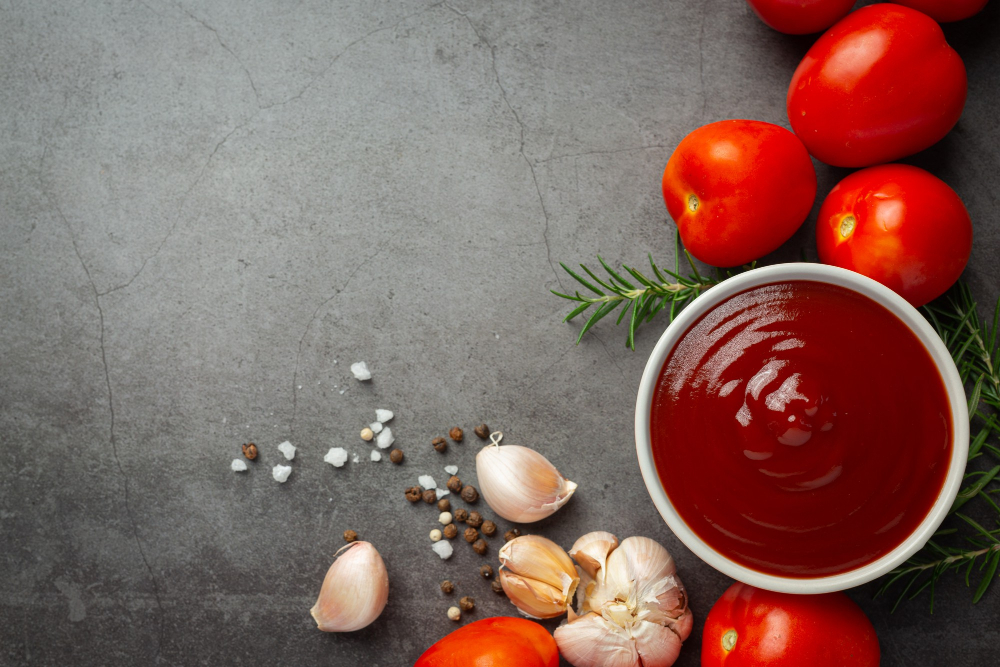What kind of vinegar do you use for marinade?
In the world of cooking, marinades play a crucial role in enhancing the flavors of various dishes. Vinegar, a versatile ingredient, is often used as a key component in marinades to tenderize and add tanginess to meats, fish, and vegetables. However, with numerous types of vinegar available, it can be overwhelming to determine which one is the best choice for your marinade.
Understanding Vinegar Varieties
Vinegar is typically made through a fermentation process that converts sugars into acetic acid. The combination of different ingredients and the fermentation methods used result in a variety of unique vinegar flavors. Some common varieties include:
- Distilled White Vinegar: This vinegar is made from distilled alcohol and is known for its neutral taste. It’s a versatile option suitable for most marinades.
- Apple Cider Vinegar: Made from fermented apple juice, this vinegar has a mild fruity flavor that works well in marinades for pork, chicken, and salads.
- Red Wine Vinegar: Derived from red wine, this vinegar imparts a rich, robust flavor ideal for marinades for beef, lamb, and roasted vegetables.
- White Wine Vinegar: Similar to red wine vinegar but made from white wine, this vinegar offers a milder taste. It complements marinades for chicken, fish, and light salads.
- Balsamic Vinegar: Originating from Italy, balsamic vinegar is dark, sweet, and tart. It adds complexity to marinades for beef, poultry, and vegetables.
Choosing the Right Vinegar for Your Marinade
The type of vinegar you select for your marinade should depend on the flavors you wish to achieve and the ingredients being marinated. Consider the following factors:
- Acidity: Vinegars with higher acidity, such as distilled white vinegar and apple cider vinegar, are excellent for tenderizing meats.
- Flavor Profile: Each vinegar variety brings its own unique flavor profile. Experiment with different types to find the taste that complements your dish the best.
- Ingredients: Consider the other ingredients in your marinade and choose a vinegar that harmonizes well with them. For example, balsamic vinegar pairs beautifully with herbs, garlic, and honey.
Expert Tips for Marinades
“When using vinegar in marinades, remember that a little goes a long way. Too much vinegar can overpower the flavors of your dish. Start with small amounts and adjust to suit your taste.”
Additionally, keep these tips in mind when creating marinades:
- Balance the flavors by combining vinegar with oil, herbs, spices, and other seasonings.
- Allow meats to marinate for at least 30 minutes, but no longer than 24 hours, depending on the type and thickness of the meat.
- Consider using marinades as a base for sauces or glazes to enhance the dish further.
Is white vinegar or apple cider vinegar better for BBQ sauce?
When it comes to making BBQ sauce, the choice of vinegar can greatly influence the flavor and overall taste. In the UK, two popular options for vinegar are white vinegar and apple cider vinegar. Both types have their own unique qualities and can contribute to delicious BBQ sauce, but which one is better? Let’s take a closer look.
White Vinegar
White vinegar, also known as distilled vinegar, is a colorless liquid with a sharp, acidic taste. It is made from fermented grain alcohol and is a commonly used condiment in the UK. When used in BBQ sauce, white vinegar provides a tangy and slightly sour flavor that complements the sweetness and smokiness of the sauce.
Using white vinegar in BBQ sauce is particularly popular for its ability to enhance the flavors of other ingredients. Its high acidity level helps to balance out the richness of meats and adds a bright, zesty kick to the sauce. Additionally, white vinegar acts as a natural preservative, helping to extend the shelf life of homemade sauces.
Apple Cider Vinegar
Apple cider vinegar is made from fermented apple juice and is known for its fruity and slightly sweet flavor profile. In BBQ sauce, apple cider vinegar adds a distinct tang and a hint of natural sweetness to the overall taste. This type of vinegar is especially popular in Southern-style BBQ sauces.
One of the advantages of using apple cider vinegar in BBQ sauce is its versatility. It pairs well with a variety of spices and ingredients, allowing you to create a nuanced and complex flavor profile. Apple cider vinegar also imparts a pleasant aroma that can enhance the overall sensory experience of enjoying BBQ.
The Verdict
There is no definitive answer to whether white vinegar or apple cider vinegar is better for BBQ sauce, as it ultimately comes down to personal preference. Some BBQ enthusiasts prefer the sharpness of white vinegar, while others enjoy the fruity notes of apple cider vinegar. Experimenting with both types of vinegar and adjusting the ratios can help you achieve the perfect balance of flavors for your BBQ sauce.
Ultimately, the best vinegar for your BBQ sauce depends on the specific flavor profile you are aiming to achieve. Don’t be afraid to get creative and try different combinations to find your perfect blend.
To summarize, both white vinegar and apple cider vinegar have their own unique qualities that can enhance the taste of BBQ sauce. Whether you prefer a tangy kick or a hint of sweetness, both options are excellent choices for creating finger-licking-good BBQ sauce in the UK.
Which is Better: Balsamic Vinegar or Apple Cider Vinegar?
When it comes to vinegars, two popular choices are balsamic vinegar and apple cider vinegar. While both have their own unique flavors and health benefits, determining which one is better really depends on your personal preferences and needs. Let’s take a closer look at the characteristics of each vinegar to help you make an informed decision.
Balsamic Vinegar
Balsamic vinegar originated in Italy and is made from fermented grapes. It has a complex, sweet flavor with a slightly tart undertone. Many people enjoy its rich taste and use it as a dressing or glaze for salads and roasted vegetables. Balsamic vinegar also pairs well with fruity flavors, making it a popular choice for marinades and desserts.
Health Benefits: Balsamic vinegar contains antioxidants that help reduce inflammation and improve digestion. It may also aid in weight loss and promote heart health.
Apple Cider Vinegar
Apple cider vinegar is made by fermenting crushed apples. It has a tangy, acidic taste and is known for its strong aroma. Apple cider vinegar is commonly used as a condiment, salad dressing, or added to beverages like water or tea. Some people also use it for pickling fruits and vegetables.
Health Benefits: Apple cider vinegar has antimicrobial properties and can help regulate blood sugar levels. It is also believed to aid in weight loss, improve skin health, and promote healthy digestion.
In summary: Both balsamic vinegar and apple cider vinegar offer unique flavors and potential health benefits. Balsamic vinegar has a sweeter taste and is great for dressings and glazes, while apple cider vinegar has a tangy flavor and is commonly used for condiments and beverages.
If you are looking for a vinegar with a milder taste and a touch of sweetness, balsamic vinegar might be your preferred choice. On the other hand, if you enjoy a more tangy and acidic flavor, apple cider vinegar might be the better option.
Ultimately, the decision between balsamic vinegar and apple cider vinegar comes down to personal preference and the specific dish you are preparing. Why not try both and see which one suits your taste buds best?
What does apple cider vinegar do in a marinade?
When it comes to creating the perfect marinade, apple cider vinegar can be a game-changer. This versatile ingredient not only adds flavor but also helps tenderize meat and enhance the overall texture of your dish. Let’s take a closer look at what apple cider vinegar brings to the table when used in a marinade.
1. Adds a tangy flavor
Apple cider vinegar has a distinct tangy taste that can elevate the flavors of your marinade. Its acidity helps balance out rich and fatty meats, bringing brightness to your dish. The vinegar’s natural sweetness provides a subtle undertone to complement the other ingredients in your marinade.
2. Tenderizes meat
One of the key benefits of using apple cider vinegar in a marinade is its ability to tenderize meat. The acetic acid in vinegar helps break down the muscle fibers in the meat, resulting in a more tender and juicy texture. This is especially useful for tougher cuts of meat that require longer cooking times.
3. Enhances moisture retention
Apple cider vinegar is known to improve the moisture retention of meat during cooking. By marinating your meat with vinegar, you create an environment where the meat retains more moisture while cooking, leading to a juicier final product. This is particularly important for lean meats that tend to dry out easily.
4. Imparts a subtle tang to vegetables
Not just limited to meats, apple cider vinegar can also add depth and tanginess to your vegetable marinades. Whether you’re marinating roasted vegetables or preparing a fresh salad, a touch of vinegar can transform your dish into a flavor-packed sensation.
“Apple cider vinegar brings a unique combination of tanginess and sweetness to marinades, making them more flavorful and appetizing.” – Culinary expert
If you’re wondering how to incorporate apple cider vinegar into your marinades, here’s a simple recipe to try:
| Ingredients | Amount |
|---|---|
| Apple cider vinegar | 1/4 cup |
| Olive oil | 2 tablespoons |
| Garlic (minced) | 2 cloves |
| Dijon mustard | 1 teaspoon |
| Honey | 1 tablespoon |
| Salt | 1/2 teaspoon |
- In a bowl, whisk together apple cider vinegar, olive oil, minced garlic, Dijon mustard, honey, and salt.
- Place your choice of meat or vegetables in a resealable bag or container.
- Pour the marinade over the meat or vegetables, ensuring they are fully coated.
- Marinate in the refrigerator for at least 30 minutes, or ideally overnight for maximum flavor.
- Remove from the marinade and cook as desired.
So the next time you’re planning a BBQ or looking to add some zing to your dishes, don’t forget to include apple cider vinegar in your marinade for that extra boost of flavor and tenderness!
Is Marinating Chicken in Vinegar Good?
Marinating chicken is a popular technique used to tenderize and flavor the meat. One common ingredient used in marinades is vinegar, but is marinating chicken in vinegar actually beneficial? Let’s explore the potential benefits and drawbacks of using vinegar as a chicken marinade.
The Benefits of Marinating Chicken in Vinegar
Vinegar has been used for centuries as a natural way to enhance the taste and texture of meat. When used as a chicken marinade, vinegar can offer several benefits:
- Tenderizing: The acidic nature of vinegar helps break down proteins in the chicken, making it more tender.
- Flavor enhancement: Vinegar infuses the chicken with its distinct tangy flavor, adding depth to the overall taste.
- Food safety: Studies have shown that marinating chicken in vinegar can reduce the presence of certain bacteria, such as Salmonella and E. coli, making the meat safer to consume.
Potential Drawbacks to Consider
While marinating chicken in vinegar can provide benefits, there are a few drawbacks to be aware of:
- Over-marinating: Too much exposure to vinegar can make the chicken overly sour and mushy. It’s important to follow recommended marinating times and ratios.
- Texture changes: While vinegar can tenderize the chicken, excessive marinating can result in an unpleasant texture.
- Allergic reactions: Some individuals may be sensitive or allergic to vinegar, so it’s essential to consider dietary restrictions when using it as a marinade.
Overall, marinating chicken in vinegar can be beneficial for tenderizing, flavor enhancement, and food safety. However, it’s important to exercise caution to avoid over-marinating and negative texture changes. Take into account any allergies or sensitivities when incorporating vinegar into your cooking routine.
If you are planning to marinate chicken in vinegar, consider combining it with other ingredients such as olive oil, herbs, and spices for a well-rounded flavor profile. Experiment with different vinegar varieties like apple cider vinegar or red wine vinegar to discover your favorite combination.



